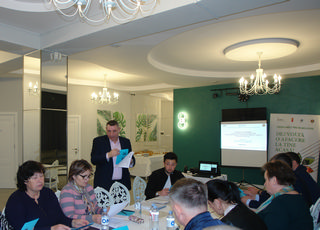
ACSA și Unitatea Consolidată pentru Implementarea Programelor IFAD a dat start Campaniei de informare la nivel regional despre oportunitățile de finanțare în sectorul irigării la scară mică
martie 13, 2023
COMUNICAT DE PRESĂ
noiembrie 1, 2024Moldova’s most important natural resource is its fertile land, chernozem, which covers 73% of its agricultural land . This is one of the reasons why Moldova’s dependence on the agricultural sector is the highest in Europe. However, unsustainable agricultural practices have led to rapid soil degradation, resulting in an estimated annual loss of humus (soil organic matter) of 5-7 tons per hectare, causing an annual loss to the economy of US$239 million. Almost 2 million hectares have been affected by soil degradation in the last 20 years.
The war in Ukraine has caused a refugee crisis and increased gas prices, which have strongly affected the prices of mineral fertilizers. This has led to high inflation and rising food prices, which are becoming increasingly inaccessible in the poorest country in Europe for both residents and refugees.
The dynamic development of biotechnology and parallel significant prices increases of mineral fertilizers changed the situation on the agricultural market. Currently, it is possible to produce biological fertilizers cheaper than mineral. Own production of organic fertilizers from agricultural waste and the use of innovative cultivation technologies (no and low till) are an opportunity to increase the economic efficiency of plant crops, improve farmlands and final quality of agricultural products. This is crucial for the further economic development of Moldova, which relies so heavily on agriculture. Similar solutions are recommended in EU Green Deal Policy. They are also of high interest of the Moldovan Ministry of Agriculture, agricultural producers, the food processing sector, environmentalists, owners of biogas plants and others.




